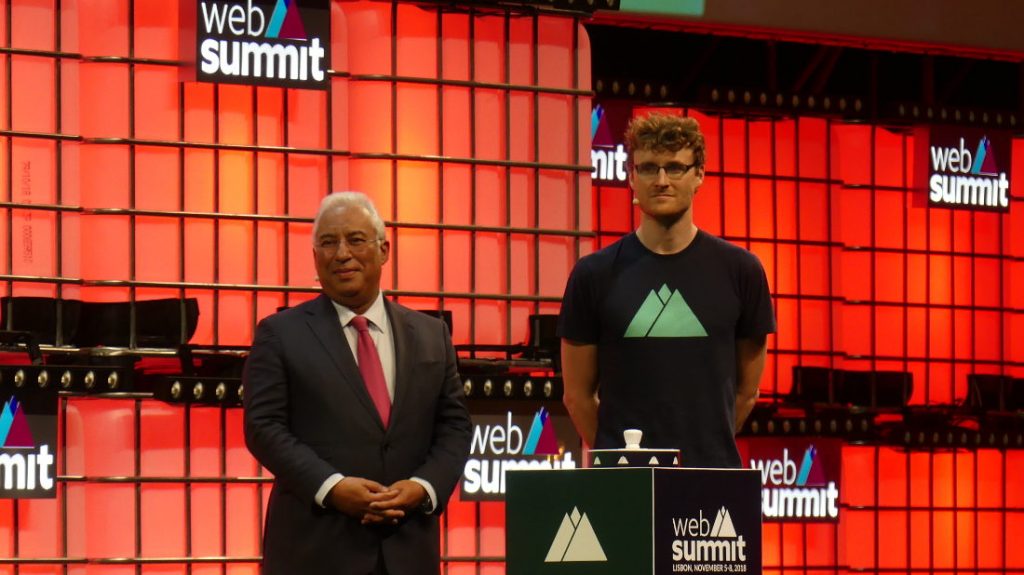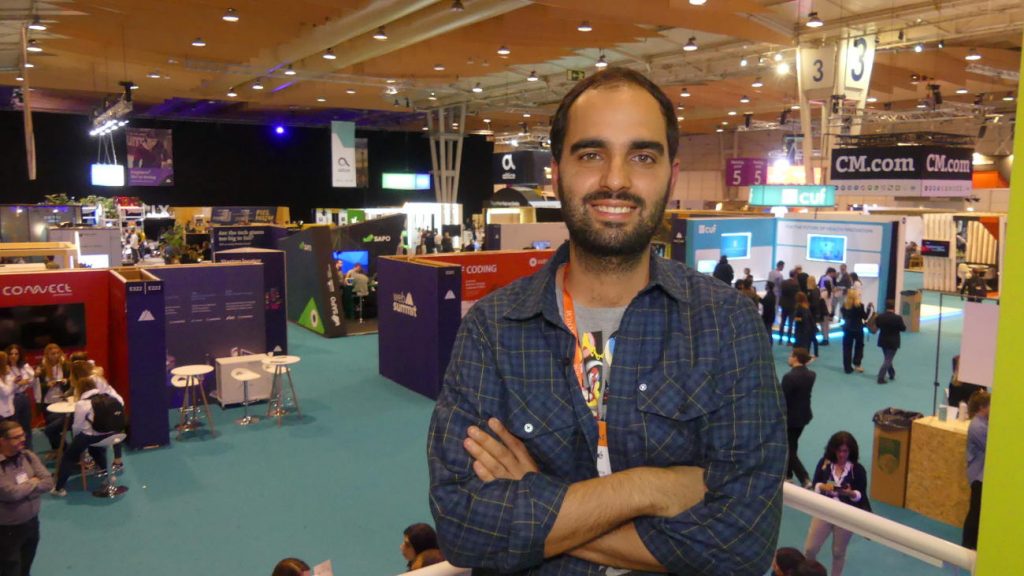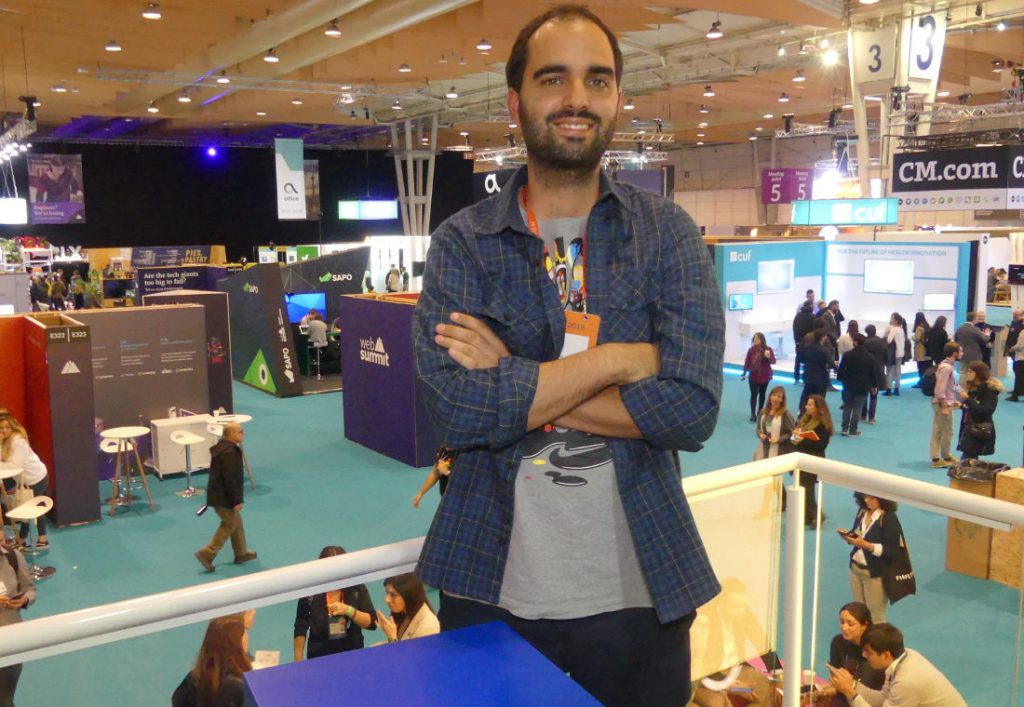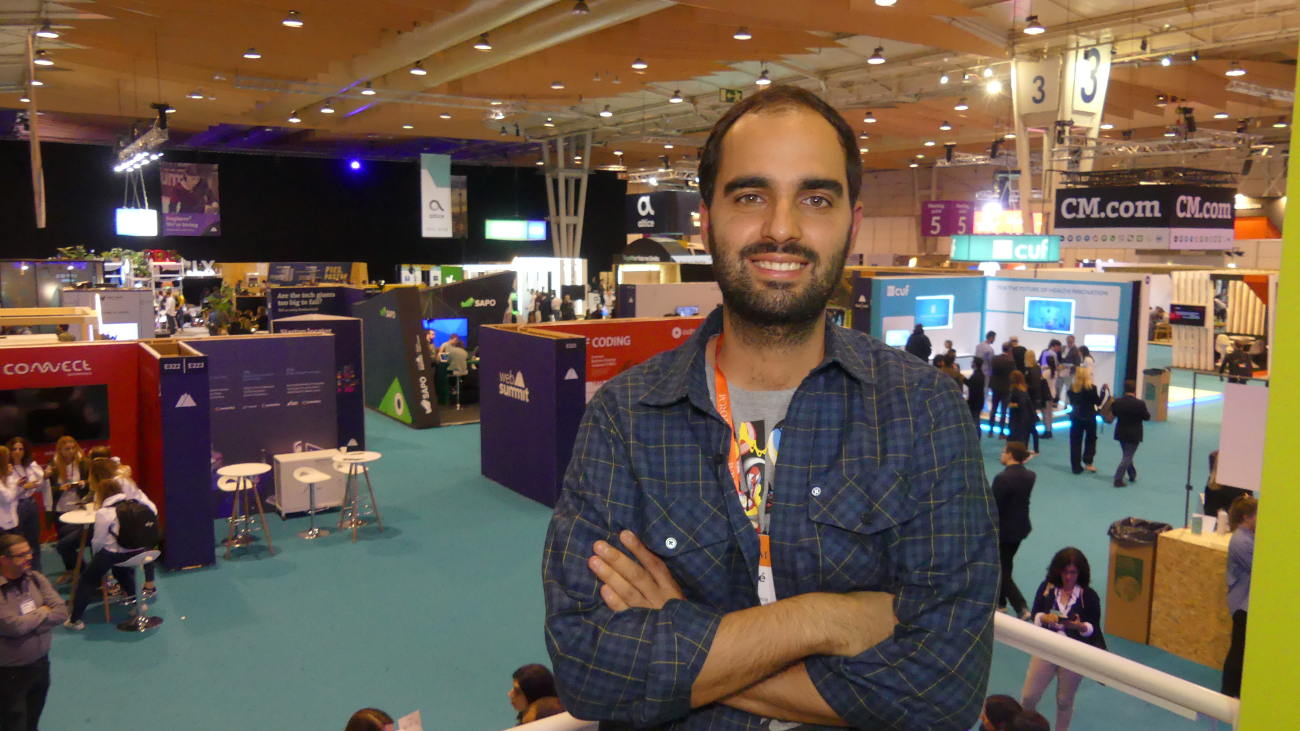LISBON (ViaNews) – Startup Lisboa launched an early-stage business incubator for local commerce, tourism, and tech companies in February 2012.
It was part of an ecosystem of hubs and incubators of Portugal’s new governmental focus on funding tech as job creation and economic growth motors.
An agile sustainable global circular economy approach
Headquartered downtown in ancient silver jewelers street “Rua da Prata”, Startup Lisboa is trying to turn silver into gold, by transforming gentrification downturn effects of traditional shops closing in the downtown area, into a win-win scenario. How?
By attracting entrepreneurs, investors, and talent for the quarter to foster synergies with an entrepreneurial spirit.
Startup Lisboa is a private non-profit association. For this business strategy IAPMEI-Portugal´s public agency for Competitiveness and Innovation, the Municipality of Lisbon, and a Portuguese bank, Montepio Geral, launched a common fund of 500,000 Euros in 2011.
Additionally, banking partner, Montepio, repurposed a branch office in Rua da Prata, remodeling it for half a million Euros, with IAPMEI. The Municipality of Lisbon added 450,000 Euros from its 2011 city budget.
Startup Lisboa is an incubator of startups. It has till date supported and mentored “virtually and locally” more than 300 startups since 2012.
Startup Lisboa has become a brand, for early-seed stage startup companies and ideas, with its open mentoring programs not focused on competition, but on learning from scratch a circular economy approach.
Currently, around 100 startups share their ideas and projects on-site and off-site the Baixa, near the river Tagus.
Compared to other large European hubs like Berlin, London, Paris, or Stockholm the figure is seemingly not impressive.
Live Electric Tours, a company incubated at Startup Lisboa, won the best European startup award (tourism category) at StartUp Europe Awards (SEUA). Live Electric Tours provide self-driving & social media sharing experience in 100% electric cars in Lisbon.
In general, the numbers of pouring capital into Portugal´s tech innovation seem notable:
After Paddy Cosgrave, co-founder of Web Summit, extended the three-year trial of anchoring his technology conference in Lisbon, to another 10-years till 2028.
Portugal´s government announced estimated revenues alone for Lisbon of the one-week conference in November of 300 million euros.
Prime Minister Antonio Costa´s government pays the technology conference Web Summit 11 million euros per year with targets up to 100,000 visitors annually.
Should the Web Summit team want to leave earlier, to another tech capital in the world, a fee of 3 billion euros is due to Portugal.
The European Investment Bank (EIB), sees a positive capital flow effect for small businesses, since Portugal’s economic recovery.
Private equity and venture capital companies are jumping in the SME funding gap left open by Portuguese private banks since 2012.
Nuno Gaioso, CEO of Portugal´s Risk Capital Association spoke of an intense “love-affair” going-on between private equity investors and tech hosted in Portugal.
Gaioso told Reuters in May assets summed up to six million Euros under the umbrella of Portuguese private equity firms.
The “Scaleup Portugal 2018 Report”, a data-driven analysis by EIT Digital, Building Global Innovators (BIG) and their partners, puts the values Portugal´s Entrepreneurial & Innovation (E&I) ecosystem in an international context.

EIT & BIG analyzed 480 Portuguese technology companies founded between 2012 and 2017. Top 3 segments are IoT (30 %), Health (18,8%), Software (15 %). Leading investment origin countries seeding startups based in Portugal are the US and UK.
A volume 110.7 million Euros of VC financing in these 5-years spend, with an average size of investment within the ecosystem of around 1.5 million Euros.
For a comparison: Consultancy KPMG estimated a total value of 54.4 billion Euros for VC funding in startups in Europe for 2017.
At “Venture Summit”, the conference before Web Summit for VC capital at the Beato Convent, Portugal´s Prime Minister, Antonio Costa, announced further 100 million euros to be channeled into supporting technological innovations.
But how much of this VC capital is getting to SMEs in the country to launch innovative solutions? Which industry segments is this capital focused?
We spoke with André Costa, Head of Strategy at Startup Lisboa since 2017, about synergies, densification problems of hubs in Portugal, and Europe.
29-years old André Costa likes to jiggle, as business strategist, several hats at once for professional growth:
As Head of Strategy, he handles the smooth networking in the mentoring programs for the startups, which are most in an early seed stage.
André Costa, born in Lisbon, graduated in 2012 from Lisbon´s ISCTE in Business Administration, with a case study on the strategic development of a Portugal-based company.
“If you compare the quality of the talent, we’re pretty well classified. If you compare the costs, we’re still very competitive because having an engineering team in Lisbon is less expensive than having one in Berlin or London.”
André Costa, Head of Strategy at Startup Lisboa
André, a passionate basketball hobby player came to Startup Lisboa, in 2016, as Country Manager of incubated startup, Waynabox-a European startup based in Barcelona which promotes low-cost trips to surprise destinations. Before, André worked as Product Developer for multinational telco NOS, as Strategy Analyst at staffing company Accenture, and as a Manager at PwC Portugal.

Cristina Costa – You’re responsible for the strategy of Startup Lisboa. How long are you working in this function?
I have a background as a startup founder, which is something that I divide between my role at Startup Lisboa. I’m also trying to launch another business but assuming responsibilities as a Head of Strategy at Startup Lisboa is something that I have been doing for one year.
You represent the local startup hub. How many startups are you currently with?
At Startup Lisboa we currently work with 96 startups. This a number which varies a lot and depends on how long they want to stay with us.
“Three years ago, twenty percent of the startups were international [in Portugal], nowadays it’s a fifty-fifty split.”
André Costa, Head of Strategy at Startup Lisboa
The startups are all located in Lisbon?
Some of them are. We have two models: the physical model, which are the startups that have office space in our buildings. We also have a virtual model, which are startups who can benefit from our incubation program, but they can be wherever they want in the world.
How does virtual incubation from Lisbon work?
Usually, they have offices in Lisbon or another city in Portugal, or they might be running their business outside of the country. For instance, they could be participating in an acceleration program in New York, Silicon Valley, or Germany but they are still connected with us. They are still part of our program, without the physical presence.
We work with a universe of around 100 startups. In terms of their activities, we have two main verticals: tourism and commerce. Technology is the common thread and the biggest group where most of startups fit into.
Tourism is normally associated with Portugal. It’s a traditional economic sector and always have been, since the 1980’s at least. From my impression here at Web Summit, Portuguese developers are very focused on payment solutions. You talked about commerce, could you define this more?
The reason why we started this in the commerce area was pretty much related to why Startup Lisboa was created. We are located downtown’s Rua da Prata. It’s a premium location now but it used to be completely different several years ago. One of the reasons why Startup Lisboa was created was precisely to give a boost to that area, to bring in young entrepreneurs to the city center but also to bring back the commerce. If you go there now you can see a lot of commerce happening there.
Has the traditional commerce also benefited from Startup Lisboa?
I know everything is opening in the city center now, which is good. We played a role in that because we were able to attract startups to start working in those stores too. We’re living in a digital age which means that our commerce projects right now are more focused on e-commerce platforms or the solutions that are related and could enhance the commerce growth.
Besides the two verticals, we also have technology as a key component of Startup Lisboa.
Tech as key element, why?
We like to have projects that have a technology angle, independently of whichever the segment, because we believe that the scalability of the project is the most interesting quality that a Startup needs to have. It needs to work here in Portugal and anywhere else. What we try to do is attracting companies with disruptive solutions in the markets where they’re playing. It could be in the med tech, education, sports, tourism, and commerce industry.
Isn’t it just IT talent hunting?
The Portuguese talent in the tech area is something that a lot of people here is looking for. If you compare the quality of the talent, we’re pretty well classified. If you compare the costs, we’re still very competitive because having an engineering team in Lisbon is less expensive than having one in Berlin or London.
That’s the math an international startup does when they want to move to Portugal. They have a certain amount of fundraising money from investors and, for instance, if I go to Silicon Valley this will last me for three or six months, but if I go to Portugal I can run the company for one or two years.
“We’re in the intersection point between the startups and all other relevant players. We provide them with the best match which could be mentors, investors, corporations or partners.”
André Costa, Head of Strategy at Startup Lisboa
We have the classical European big hubs, London and Berlin but there are now new focus areas in Eastern countries. There was really a startup hype, four or five years ago, and then there was maybe a kind of a unicorn hype. Portugal has three, unicorns, Talkdesk, OutSystems, and Farfetch. What do you believe to be the factors making Lisbon such an attractive startup hub?
We’re a very early stage ecosystem and when you’re starting anything from scratch, there are more opportunities. That’s why so many young entrepreneurs are now moving into Lisbon. Portugal’s value proposition is the combination of several factors: it’s a very safe country, the gastronomy and weather are amazing, and the talent is also good. This combination of factors works wonders.
The opportunities that you have here are emerging. As an example, during my time with the previous startup that I was involved and incubated at Startup Lisboa at the time, and this was three years ago, twenty percent of the startups were international, nowadays it’s a fifty-fifty split. Also, every time that we run our jury sessions, we can see people applying from all over the world. That’s something that we’re very proud of because we are creating this diverse community and it’s becoming a global one. We believe that bringing people from different countries with different experiences will benefit everyone.
“When the whole vibe started here in Portugal, we were the first ones to surf the wave. For that reason, when you talk about Portugal’s startups, you have to talk about Startup Lisboa.”
André Costa, Head of Strategy at Startup Lisboa
Which investment phases do you focus on?
Our focus is on the early stage phase. We like to work with startups when we believe that there is already some market validation, meaning they are making sales, their MVP is ready, they are testing the market and pivoting their projects, if necessary. And that’s usually when they are fundraised a few thousands of euros for their project.
We also work with a small group of startups that are going towards a Series A, meaning they already raised a few million and now they are getting bigger. That’s the moment when they can already do it by themselves and then we let them fly.
How do you help startups who want to go to, let’s say, Berlin, Germany?
Germany is an interesting market for us because it’s a huge market for startups and it’s not as far from Lisbon, as the United States are.
What’s happening right now is that we give them our value proposition, meaning, we have mentors with a lot of experience in running companies in Germany, or in different countries. When they need to explore a new market, instead of going there and spending the time trying to figure it out everything by themselves, we just introduce them to the right people with contacts and experience in the market to save their time and money. We have some startups and people in different cities, which we can leverage on a regular basis.
Is it the network that makes all the difference?
We’re in the intersection point between the startups and all other relevant players. We provide them with the best match which could be mentors, investors, corporations or partners.
We help them through mentoring, investors, and also partners because they can have a lot to offer to them. That made us a strong brand.
What is the USP of Startup Lisboa?
The main reason is that we’ve been here since the beginning. When the whole vibe started here in Portugal, we were the first ones to surf the wave. For that reason, when you talk about Portuguese startups, you have to talk about Startup Lisboa. Maybe not because we were the best but because we were here since the begining.
Do you cooperate with other hubs?
I think there’s no space for competition in this world, you have to work with the local partners and try to see how you could help the startups. Ultimately, what’s going to determine your success is the ability of working together and helping the startups to grow. In our jury sessions when we see a great project and we recognize we might not be the best solution for the startup, we introduce to another incubator or another accelerator program, inside or outside of Portugal.
“I think Web Summit is huge and important because it’s bringing a lot of people that are now landing in Lisbon for the first time.”
André Costa, Head of Strategy at Startup Lisboa
Is there a ranking of countries for Startup Lisboa?
Coming in right now are entrepreneurs, obviously, from the European countries like Germany, France, and Spain. But also, from the United States.
Which role does the European Community play in this process?
We have done initiatives with the European Union, but I would say this is still a work that has been done by the local players. In the investment side, there are a lot of programs where startups can get capital as grants. It’s exactly in the investment area which I think the EU is doing an amazing work. On the community side, I think the community works the way it works, which is like in networking [Web Summit] and another type of events. The European Union may seem to have a more passive stance but that doesn’t mean they aren’t working in the background to make it happen.
How important is it for you at Startup Lisboa that the Web Summit was secured for another 10 years here?
I think Web Summit is a huge and important event because it’s bringing a lot of people that are now landing in Lisbon for the first time. I mean the weather, the people, the places, but also the companies and the startups are being discovered now. If Portugal has been out of spotlight for the world, now it seems that we’re in the spotlight because everybody wants to come here. I see this because within this two years we now have a fifty-fifty split of Portuguese and foreign startup founders at Startup Lisboa.

“When you’re launching a company you need to be able to attract smart money, where the investor is not going to give you just the money but also the network, commitment, mentorship”.
André Costa, Head of Strategy at Startup Lisboa
What is the target for 2019, in terms of internationalization?
We want to keep the same fifty-fifty split because everybody’s happy this way. Our goal at Startup Lisboa is continuing to work in our mission, which is very clear. We have two main axes, one of them is to help the startups to grow and be successful and the other is making sure that Lisbon, and also Portugal, continues to be a relevant player in the scene. I think events like these play a huge role because it’s our chance to showcase all the good things we’re doing here.
How is the participation of ventures? I remember there were two big Portuguese groups: Faber Ventures and Portugal ventures. How are you tied to them? Are they the founders of Startup Lisboa?
No, they are not. They are companies that we worked with a lot.
“Right now, we have more Portuguese investors and international investors which are moving to Portugal.”
André Costa, Head of Strategy at Startup Lisboa
When a startup needs funding. How does it work? You first try to attract venture capital from Portugal or from Europe?
It’s really up to the Startup. When you’re founding a startup, you need to make sure that you have the right investors onboard with you. It’s critical for your success. And when you’re launching a company you need to be able to attract smart money, where the investor is not going to give you just the money but also the network, commitment, mentorship, partnership, someone to call when doubts arise, someone to call to discuss about an idea, to get business tips, presenting you to the right persons locally and internationally. Someone who works to help you being successful.
Right now, we have more Portuguese investors and international investors which are moving to Portugal. They like what they are seeing in events like the Web Summit and they want to invest in Portuguese startups because they like what the Portuguese startups are doing.
“The government has been making a huge investment creating programs and developing initiatives that are allowing more companies to come here.”
André Costa, Head of Strategy at Startup Lisboa
Where are the foreign investors coming from?
They are coming from all over the world, mostly European countries. They’re opening new branches here in Portugal.
How do you think Portugal is benefiting from this situation?
I think we are benefiting because we are one of the safest countries on earth. We have been fortunate to not have any type of incident here and that helps to create the perfect environment to allow companies to come here. The government has been making a huge investment creating programs and developing initiatives that are allowing more companies to come here. Investors are also finding it easier to invest in Portuguese startups.
Do you have a number of how much money is being invested?
No, I don’t have the number.
Social entrepreneurship, the UN Charter, social sustainability, Human Rights, diversity, and social topics are becoming more important. Are you also focusing more on this reality?
The strongest message that is being conveyed here is that we care a lot. In terms of gender equality, we are always very interested in having companies whose co-founders are women. That’s something we care a lot. Also, when we see projects with a social ambition we usually want to bring them onboard because they’re promoting social good. For instance, we have one startup incubated at Startup Lisboa right now that is doing a platform that allows refugees to teach foreign languages. We’re proud to welcome these types of projects because they have a global dimension and they are on the good side of the reason. We like to have people who can have a huge impact on people’s life not only in the business dimension but in the human dimension too.
“Being an entrepreneur is a difficult task. It’s something that you should be really passionate about what you’re doing and you should be the first to believe in yourself to make it happen.”
André Costa, Head of Strategy at Startup Lisboa
How many visitors you had here during these days? how many talks, how tired are you?
Very tired; countless business cards, countless talks with different types of people: investors, partners, startups, entrepreneurs, curious people, and students. It’s a very diverse place to be and that has obviously been a challenge. Now that we are getting into the end, I think we’re all happy because I think we did a good job this year as we did in the previous year.
André, which piece of advice would you give a young entrepreneur who wants to come to Startup Lisboa to get funding?
I think the most important thing is that you need to be resilient. Being an entrepreneur is a difficult task. It’s something that you should be really passionate about what you’re doing and you should be the first to believe in yourself to make it happen. Otherwise, nobody is going to believe for you.
Another important thing is to be open. Don’t be afraid to share the idea, what the project is about, receive feedback-either if it’s good or bad-you will learn valuable things. Just being open also to talk with people in a very informal and uninterested way at first. Don’t go to an investor and start pitching what your project is about immediately, because people don’t relate only to projects, they relate to people, and their emotions and feelings.
Do you let young entrepreneurs pitch to you directly? Do you pose any specific question?
Yes, obviously. There’s a lot of people that actually stopped by us today. When meeting and talking to them, I always begin by understanding what’s the idea and what they are building. We also try to see how scalable the idea is. If it is something that’s going to work locally or is it something that could work overseas? What we always try to understand, and this is the most important part, is who’s the person, or persons, on the other side. Who’s the entrepreneur? What motivations do they have? What’s their vision? Where do they want to go? What are they passionate about?
Passion is important but money too. That is why the balance is so hard because you need to keep your vision and passion but trying to make money and be profitable. You have to be able to generate revenue and sell the product that you’re bringing to the market. That’s why it’s so demanding and so hard but that’s the beauty of it.
“When you’re leading a startup, you’re always in a rush because things change so quickly that you need to go fast, be aggressive, be bold.”
André Costa, Head of Strategy at Startup Lisboa
What’s your favorite startup you’ve seen here?
I saw a lot of good projects, but I could not actually pinpoint one or two because there were so many good ideas; so many people passionate about what they were doing and building. Some really great stuff and I wish them the best.
Do you have a target number of startups which you want to be incubating next year in 2019?
We have one hundred and I think we’ll be okay next year with that number. We want to keep the ones we already have because we know they will be growing but we’re also accepting new ones. We usually have this number of around 100 startups and that’s been a very consistent number over the last years.
How many startups succeed? What could the Portuguese government or the European government do even better to prevent such situations?
Sometimes, the reason why you fail in a startup is not related to government or the European Union. You could fail because the market changes, technology changes. What we are seeing this year [at the Web Summit] is going to be completely different if the Web Summit would be hosted in the next six months.
What percent of startups are successful?
We don’t have an exact number but we say in a very informal way that when you’re starting a company you know, more or less, that your chances to be successful are less than ten percent.
Why?
You have to face the market, the technology shifts, the competitors that are trying to beat you. When you’re launching a startup, you’re always in a rush because things can change so quickly, so you need to go fast, be aggressive, be bold. That’s why it’s so hard to keep this balance. I think there’s no magical formula. When you’re in an entrepreneur shoes, you need to make sure that you have as much information as possible on what you’re building, know your competitors, the economic framework, and your industry. Then, you do your part and you keep focused on that.
What do you think will be the biggest technology trends in 2019?
I think, definitely, AI will continue to see a huge growth. Cryptocurrencies, are emerging and booming and I think it’s something that next year people will speak a lot about too.
Which are the most important partner countries for you in Europe?
I would not prefer to risk any names because we have a lot of good relations. We obviously have very good relations with European players and partners, but that is the same with countries like the United States or Brazil. We always need to think globally.







